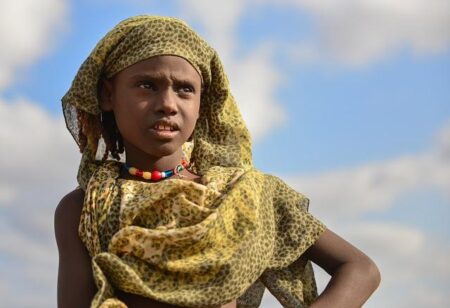In a surprising turn of events, a communist faction in the French Senate has moved to halt the ratification of a contentious military cooperation treaty with Djibouti, a key strategic partner in the Horn of Africa. The treaty, which was initially poised to enhance defense ties between France and Djibouti amid growing geopolitical tensions in the region, now faces significant obstacles as leftist senators voice their concerns. This development reflects the broader shifting dynamics within French politics regarding military engagements abroad, particularly in regions where France has historical ties. As the debate intensifies, the implications for both nations and their long-standing partnership remain to be seen, raising questions about the future of military cooperation in an increasingly volatile geopolitical landscape.
Djibouti’s Military Cooperation Treaty Faces Scrutiny in French Senate Deliberations
The ongoing deliberations in the French Senate have brought significant attention to the military cooperation treaty between France and Djibouti, particularly as the Communist Group raises concerns regarding its implications. Lawmakers are scrutinizing various aspects, including the strategic military presence of France in the region, which aims to bolster security but has also raised questions about sovereignty and the potential for escalating tensions. The debate has unveiled a clash of priorities as senators express fears regarding France’s military entanglements abroad versus the necessity of maintaining security partnerships vital for regional stability.
During the discussions, several key points have emerged, highlighting the complexities of the treaty:
- Military Infrastructure: Concerns over the expansion of French military bases in Djibouti and their impacts on local communities.
- Financial Implications: Questions regarding the costs associated with military deployments and the budgetary burden on French taxpayers.
- Regional Dynamics: The treaty’s influence on relations with neighboring countries and potential backlash from other nations in the Horn of Africa.
Moreover, the treaty’s future may hinge on further negotiations and modifications to address these concerns, highlighting a shifting landscape in France’s military commitments in Africa.
Communist Party’s Concerns Over Strategic Alliances Impact Defense Agreements
The Communist Party has raised pivotal concerns regarding the recent deliberations on a military cooperation treaty between France and Djibouti. Citing potential implications for regional stability and sovereignty, the party has called for a thorough reassessment of France’s strategic alliances, particularly with nations that may harbor conflicting interests. Party representatives argue that strengthening military ties could inadvertently exacerbate tensions in the region and diminish local governance, especially as geopolitical dynamics shift in favor of greater foreign military presence.
Key issues highlighted during the discussions include:
- Sovereignty Concerns: Critics within the Communist Party worry that these agreements undermine Djibouti’s autonomy.
- Potential Escalation of Conflicts: Increased military cooperation could escalate existing tensions, particularly with neighboring countries.
- Community Impact: There’s apprehension regarding the social and economic consequences on local populations as military priorities potentially overshadow civilian needs.
In light of these factors, the Communist Party is advocating for a more transparent military policy, urging the French government to prioritize diplomatic channels over military solutions. They emphasize that sustainable peace must be achieved through dialogue rather than an increased military footprint in the region.
Recommendations for Enhancing Transparency and Diplomatic Engagement in Djibouti Affairs
To foster greater transparency in Djibouti’s military agreements, stakeholders must prioritize the establishment of clear communication channels involving the government, military, and civil society. This can be achieved through:
- Public forums to discuss military partnerships and their implications.
- Regular updates on military treaties and operations, distributed through accessible media.
- Inclusion of local communities in dialogues about military presence and cooperation initiatives.
Moreover, enhancing diplomatic engagement requires a multi-faceted approach, which includes building trust through consistent dialogue and cooperation with international and regional partners. To achieve this, it is essential to:
- Facilitate bilateral and multilateral meetings to address common security concerns in the Horn of Africa.
- Encourage collaborative projects that underscore peacebuilding and development.
- Promote transparency in defense spending to ensure accountability and bolster confidence among citizens and foreign allies.
Key Takeaways
In conclusion, the ongoing debate in the French Senate regarding the military cooperation treaty with Djibouti underscores the complexities of international relations in the Horn of Africa. The intervention by a communist group highlights the diverse political forces at play, as well as the growing scrutiny over France’s military engagements abroad. As negotiations continue and the implications of potential delays unfold, both Djibouti and France may need to recalibrate their strategies to navigate these diplomatic challenges. With regional stability hanging in the balance, the outcome of this parliamentary deliberation could significantly impact the dynamics of military cooperation and geopolitical alliances in the region. As the situation develops, stakeholders from all sides will be looking closely to see how these tensions resolve and what it means for future French engagement in Africa.







